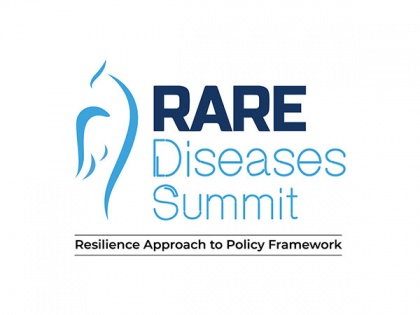Better regulatory mechanism and patient registry; a must for rare disease management; experts at the IHW Council Rare Disease Summit
By ANI | Published: July 1, 2023 01:37 PM2023-07-01T13:37:00+5:302023-07-01T13:40:09+5:30
BusinessWire India New Delhi [India], July 1: The experts at the Rare Disease Summit emphasised the need for patient ...

Better regulatory mechanism and patient registry; a must for rare disease management; experts at the IHW Council Rare Disease Summit
BusinessWire India
New Delhi [India], July 1: The experts at the Rare Disease Summit emphasised the need for patient registry for accessible treatment opportunities for rare disease patients while deliberating on the various aspects of rare disease management in the country. The summit was organized by the health think tank, Integrated Health and Wellbeing Council in collaboration with AstraZeneca to create awareness on rare diseases and their effective management.
WHO defines a rare disease as an often debilitating lifelong disease or disorder with a prevalence of 1 or less, per 1000 population. However, different countries have their own definitions to suit their specific requirements and in context of their own population, health care system and resources.
While taking part in the discussion Dr Madhulika Kabra, Professor, Genetics Subdivision of the Department of Paediatrics, All India Institute of Medical Sciences, New Delhi said that rare diseases and genome sequencing needs to be integrated into medical education for sensitisation and capacity building of peripheral health workers is necessary in this regard.
One-third out of the total cases of rare diseases across the globe, occur in India. Yet, these diseases are hardly given attention in the country as there is not enough data and research to support the numbers. With its resource constraints, India continues to lag in awareness, diagnosis, and drug development relating to such diseases, and there is inadequate medical and scientific research, to support adequate treatment.
Prasanna Kumar Shirol, Ashoka Fellow and Co-founder & Executive Director, Organization for Rare Diseases India, while discussing about the need of enhanced public participation in capacity building and R&D remarked that research is important and government needs to participate actively in it. He further added that patient registry is a critical aspect of rare disease management and patient groups can play an important role in it.
India formulated a National Policy on Rare Diseases (NPRD) in 2017 and its revised version was released in March 2021. Along with recognizing the key factors that, considerably delay the diagnosis for or up to 20 years, the policy also dwells on raising awareness, opening options for financial assistance, and establishing centres of excellence (COE) for enabling access and management of rare diseases.
Diagnosing and managing rare diseases pose unique challenges due to factors such as the limited number of patients, difficulty in diagnosis and detection, reaching dispersed populations, the absence of validated biomarkers and endpoints, and the scarcity of clinical expertise and specialized centres. WHO has already emphasised facilitating collaborations and knowledge sharing by addressing the challenges in rare diseases and investing in infrastructure and expertise.
Discussing about the role of Voluntary Crowdfunding Platforms and donor involvement, Ankita Kumari, Senior Vice President; Operations, ImpactGuru.com observed that regulations and policy support can lead to relevant development, it is important to validate donations for better trust among all stakeholders and partnering with credible organisations is imperative for better outcomes.
The experts concluded that the scarcity of medical expertise for each rare disease highlights the need for research investments to be accompanied by investments in dedicated infrastructure and global networks, such as biobanks, registries, R&D and centres of expertise. The drive towards sustainable development goals cannot be successful if it does not ensure that individuals with rare diseases receive the necessary support, care and treatment required.
(Disclaimer: The above press release has been provided by BusinessWire India.will not be responsible in any way for the content of the same)
Disclaimer: This post has been auto-published from an agency feed without any modifications to the text and has not been reviewed by an editor
Open in app